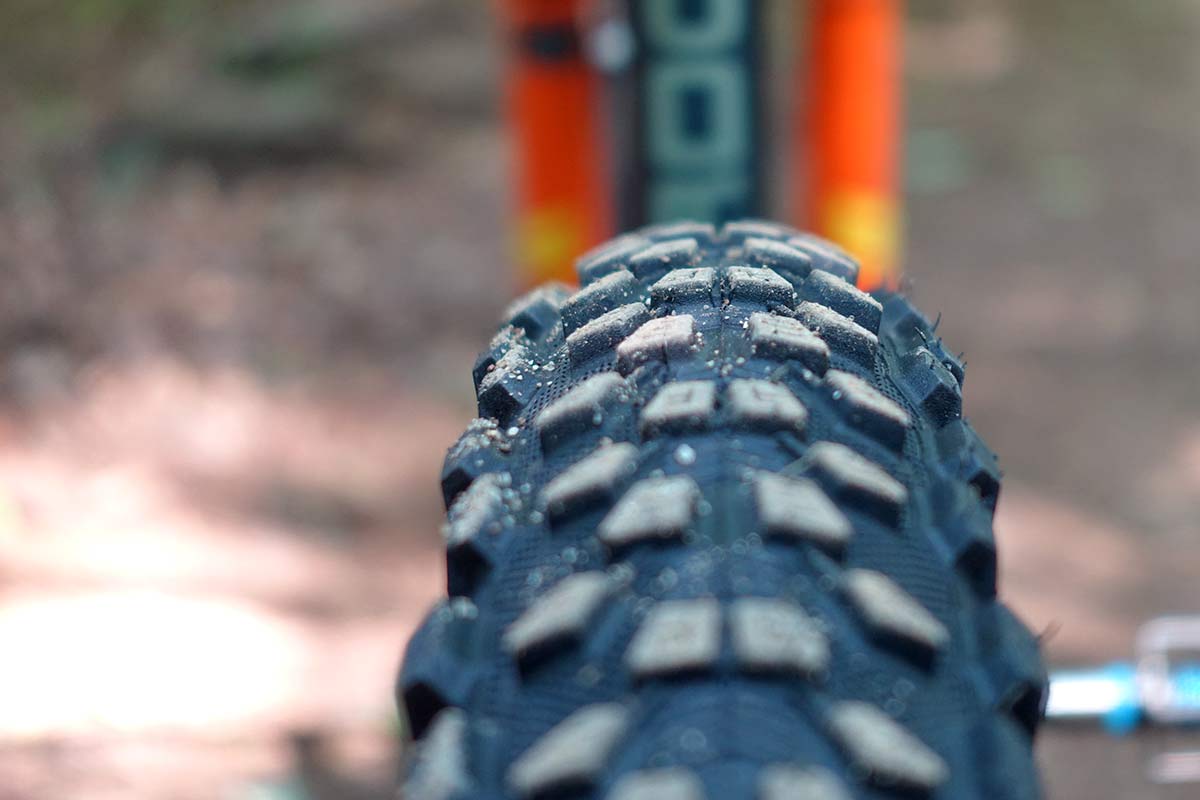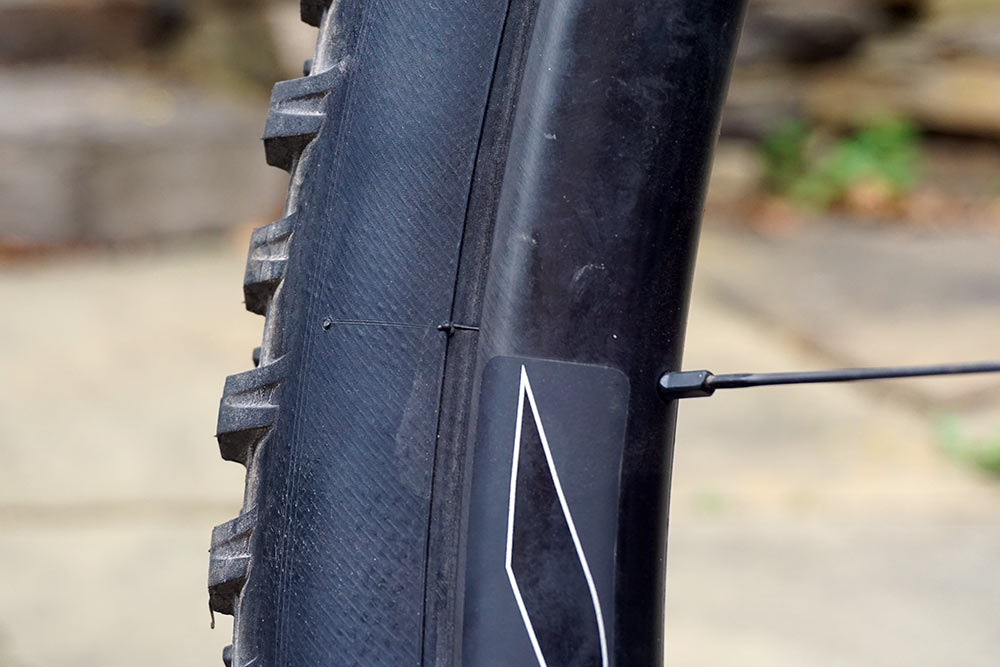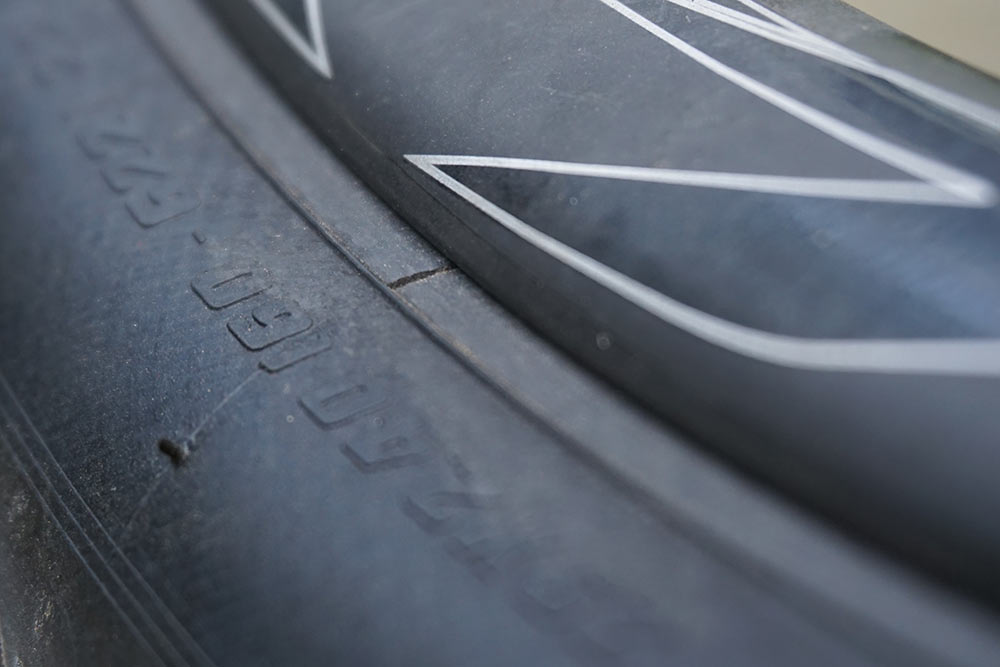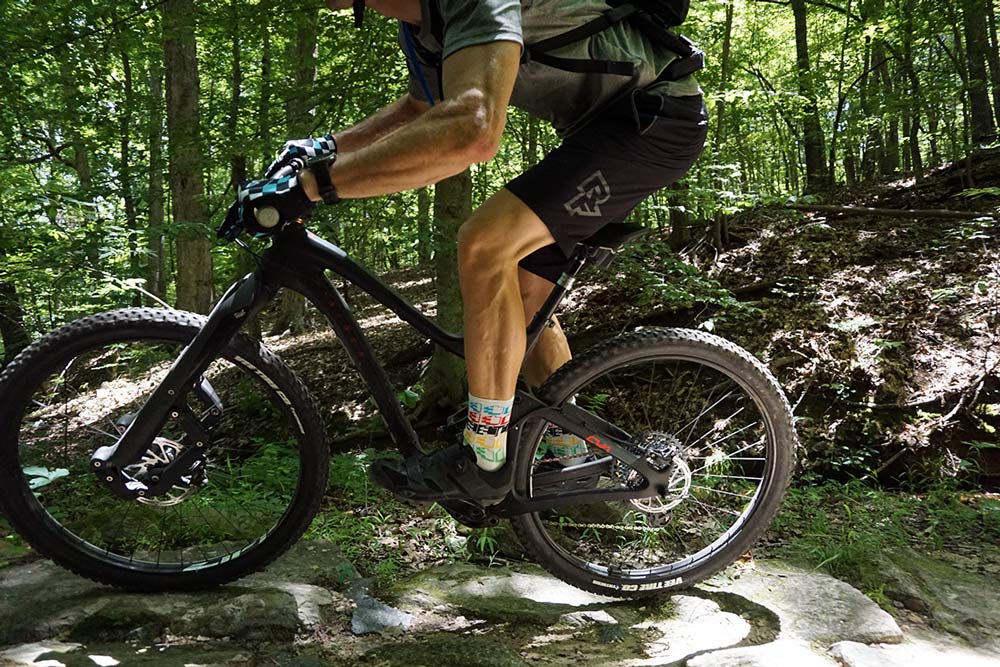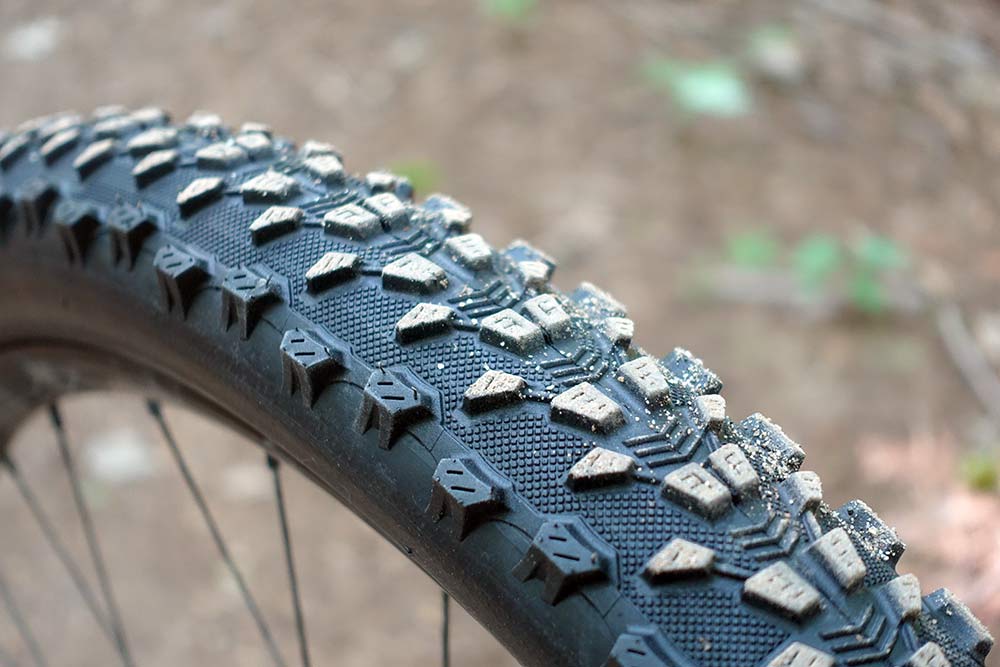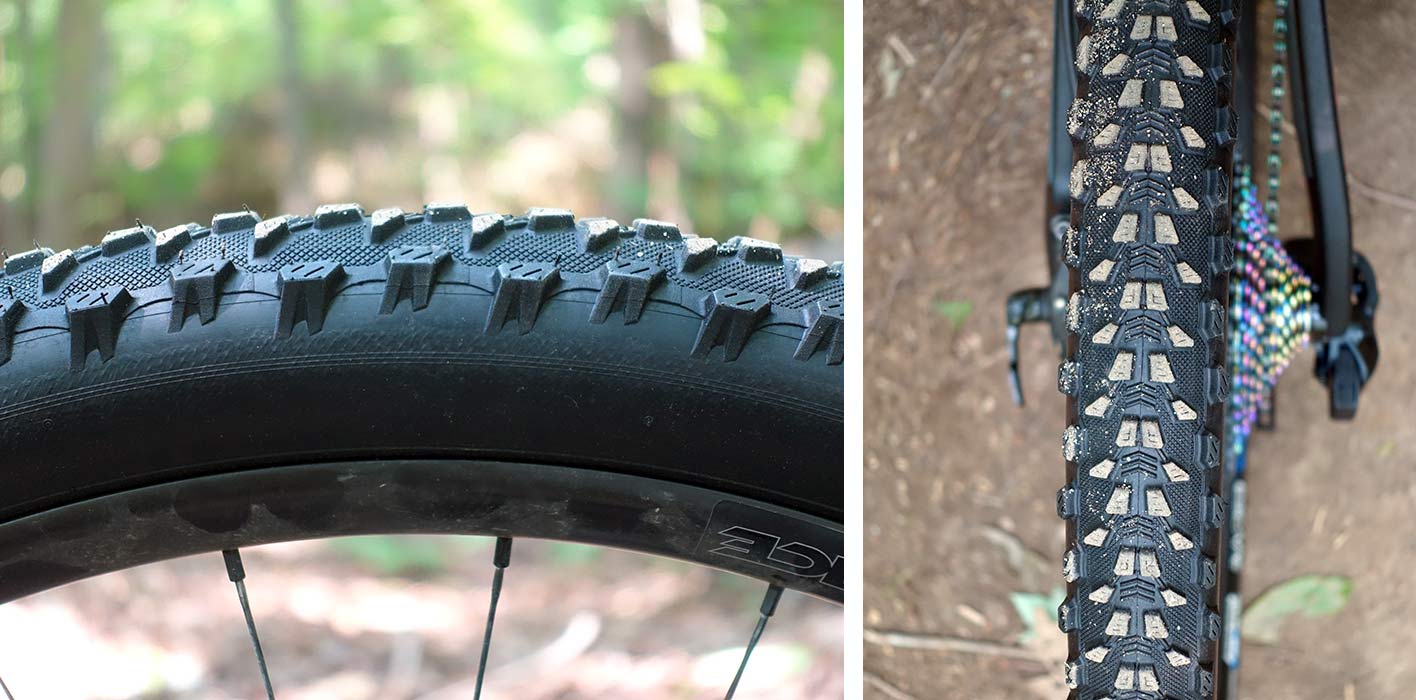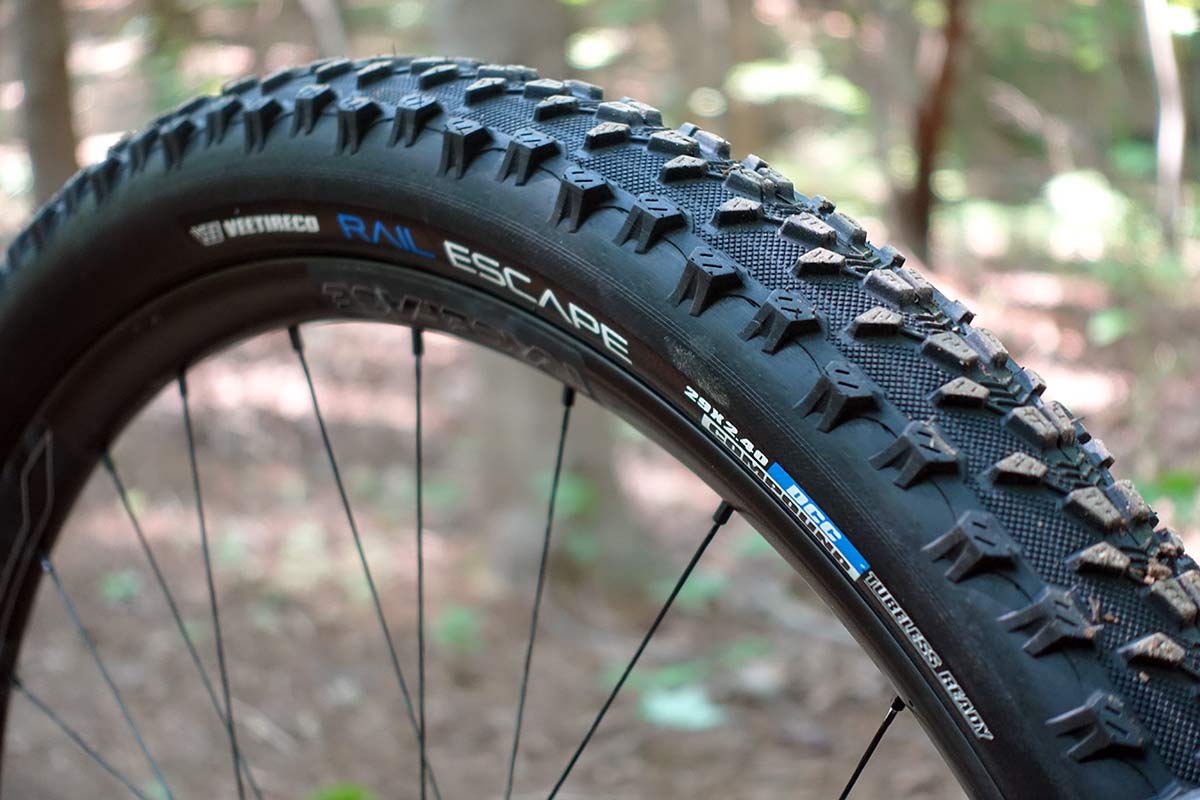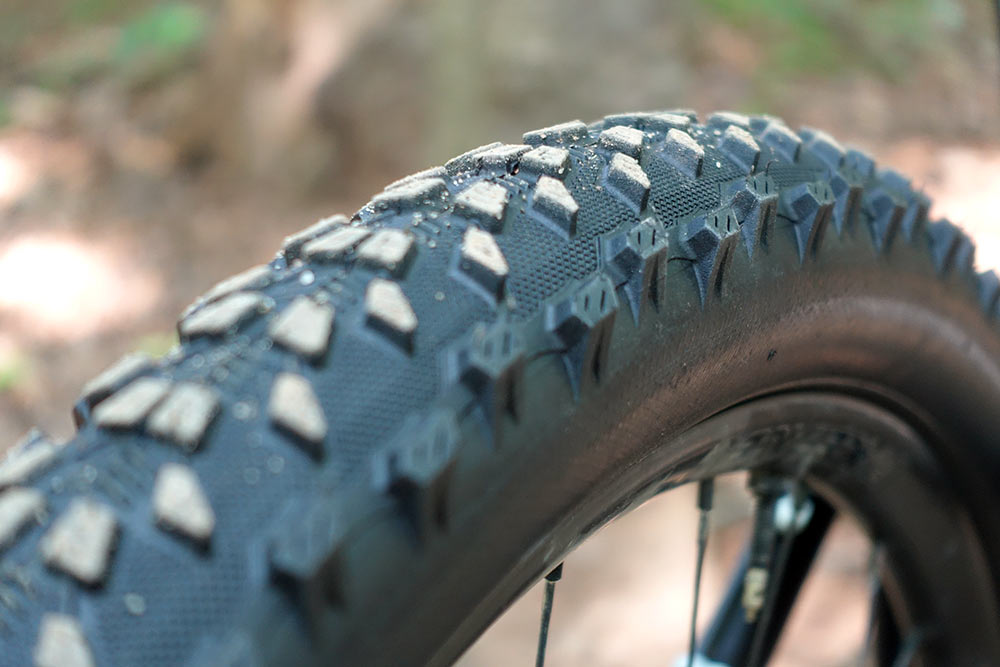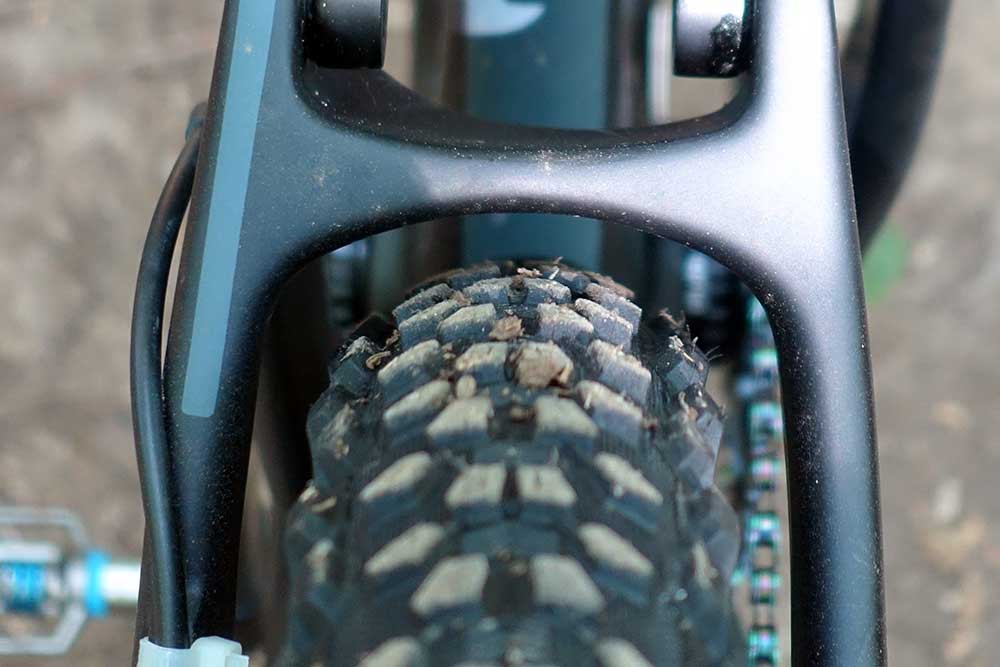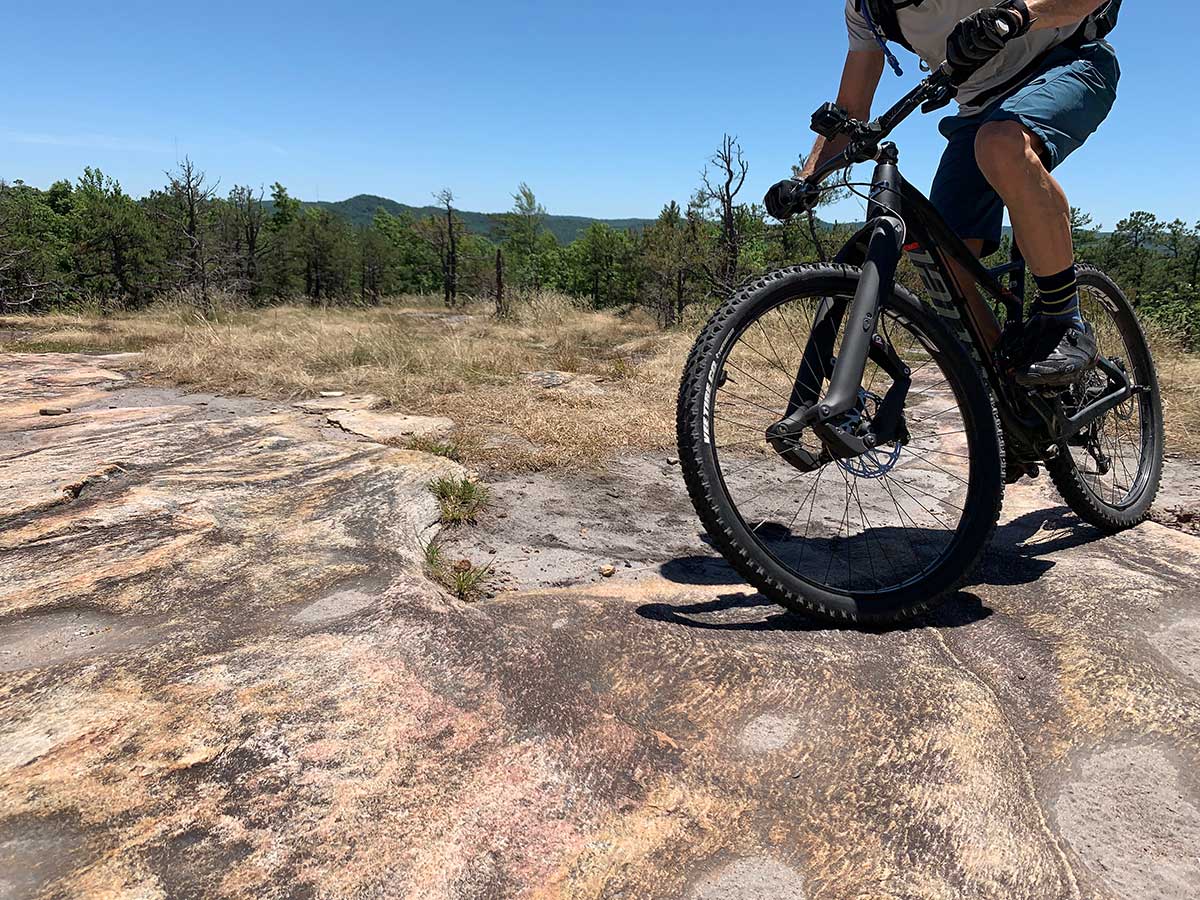The growth of the do-it-all trail bike category means more than just light-but-capable frames with 120-130mm of travel. To build a solid all-day, any-trail ripper that’s capable of shredding hard and handling aggressive terrain, you need a set of mountain bike tires that can hold up to various terrain, rocks and roots without crushing the scales. The Vee Tire Rail Escape fits that category with their latest 2.4″ width, making them worth a look…
Vee Tire Rail Escape actual widths & weights
We received four pre-production Rail Escape 29×2.4 tires to test, actual weights were 947g, 917g, 913g, and 940g. That’s on par to other “trail” tires on the market in this size range. It’s worth mentioning that these 2.4″ tires are essentially rebadged 2.35″ versions. Vee’s reps said the 2.35 was measuring closer to 2.4 anyway, so they relabeled it. This means, as of this review, you may see some tires still badged 2.35″, but they should be the same as what’s reviewed here.
That said, ours measured a little under that. We put the first pair on Race Face Next SL XC rims (26mm internal rim width) and they measured 2.3″, (left photo), but those wheels are meant more for cross country. The second pair went on Zipp’s much wider 3Zero MOTO (30.5mm internal rim width) where, surprisingly, they remained at exactly 2.3″ (center photo). The outer knobs do hit the 2.4 marks (right photo), so perhaps that was their measuring point.
Set up was mostly easy, except for…
Two of the four test tires required a little work to get the sidewall’s molding nubs to stop leaking air. During production, the casing is laid into round molds, but there are escape slots and holes to let excess rubber flow out as it’s heated and expands. On these, two of the tires each had one nub that was just a little too tall and allowed air and sealant to escape. Honestly, it seemed like a small enough spot that the sealant should have clogged it up, but alas, it wouldn’t.
So, I filed those nubs down and it created a much tighter seal. These are preproduction tires that we’ve been testing since June, so there’s a chance this won’t be an issue for you. And if it is, well, it’s an easy fix that shouldn’t detract from the fact that they’re solid performers on the trail…keep reading.
Other than one tire with a minuscule dot of sealant appearing on the sidewall during initial setup (and quickly plugged), I had no other issues. The tires mounted to both the Race Face and Zipp rims easily. Two inflated with only a normal floor pump, and two took a little extra help from a booster floor pump. None required an air compressor or any other tricks. The tires have held air very well, with no noticeable loss in pressure even during an aggressive 5+ hour ride in the mountains.
Vee Rail Escape review
I rode the tires on our local XC trails as wells as the little-bit-of-everything Dupont State Forest trails near Asheville, NC. On the trail, the Rail Escape tires felt lighter than their 900+ gram weight suggested they would, which is good. Because for me, tire weight is a big deal, and I much prefer something around 700g or less for my daily bike and hometown XC trails. Our local singletrack is a mix of dirts, from slightly sandy to extremely hardpacked, and everything in between. Plus roots, and some loose pea-sized rocks in a few sections that challenge any tire I’ve ever ridden there. As the locals say, if you’re not sliding on that, you’re not going fast enough. And, yes, the Rail Escape tires will slide there, too, but gain their composure again quickly.
The center knobs have an abrupt ramp, but they’re low enough that they still roll really fast. Between them are thin paddles, and the space between the center and side knobs has a file tread. Throw in the sipes on all of the knobs and there’s nothing on the rolling surface that isn’t grabby.
Dive into a corner and the taller side knobs do a great job of holding the line. They’re well reinforced, with buttresses extending deep into the sidewall. They’re not so tall to feel squirmy, which puts this tire more in the ‘hard, fast and dry” category as nothing on is deep enough to handle wet, sloppy conditions.
Mounted, they take on a perfectly round profile, which translated into smooth transitions from straight to cornering, and a generous allowance for leaning the bike over.
Combine that with their DCC compound that puts a softer 48a rubber on the outside and a 58a in the center, and they become a tire that grips well on slick rock surfaces, too.
If you’re looking for a faster setup, the Rail Escape is the more recent addition to their line, building off the lower-profile Rail Tracker. Put the Escape upfront and the Tracker in the rear for really dry, smooth days. But for general trail riding, I found the Rail Escape to be a predictable, reliable partner on a variety of surfaces. And with a starting price of just $45 with a 72tpi sidewall ($60 with Synthesis 120tpi sidewall as tested), they’re priced like it was 1999. And you can get them in black or tan wall, as well as 2.25″ widths, in both 29er and 27.5″ sizes.
